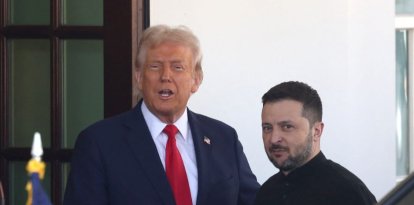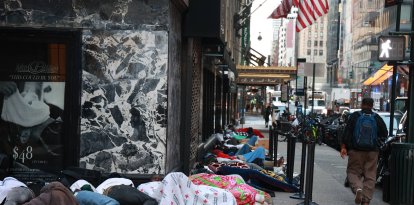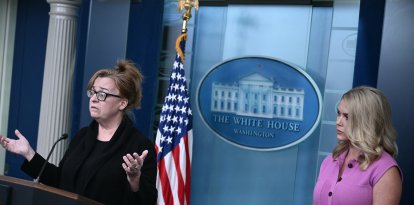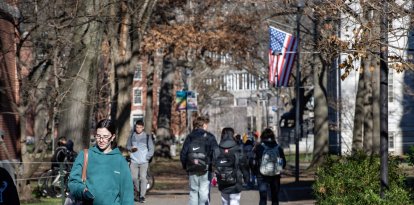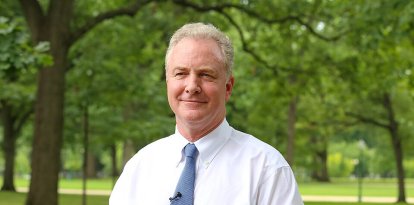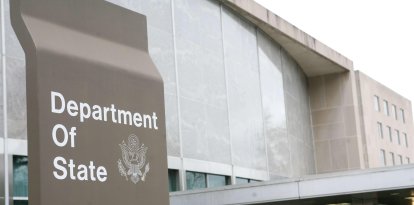Trump to appoint Stephen Miller as White House deputy chief of staff, director of his immigration plans
Miller's political rise has been remarkable, moving from a senior adviser during the Republican leader's first term to one of the top White House officials.

Stephen Miller, next White House policy director
President-elect Donald Trump is expected to announce soon his adviser Stephen Miller as the next deputy White House policy director.
Miller, recognized for being the architect of Trump's immigration policy and one of the Republican front-runner's top advisers, has gained prominence in recent years due to his restrictive views on immigration.
According to CNN, the first media outlet to report the appointment, Miller will be announced in the coming days. For now, President-elect Trump only made public Monday that former New York gubernatorial candidate Lee Zeldin will serve as head of the Environmental Protection Agency; and that Republican Rep. Elise Stefanik will be the ambassador to the United Nations (UN).
Both appointments, in addition to Miller's upcoming announcement, come after Trump named Susie Wiles as chief of staff and Tom Homan as the "border czar."
Who is Stephen Miller?
On multiple occasions, Miller defended the plans on mass deportations that Trump promised on the campaign trail and engaged the media to push for a tougher immigration policy regarding the Biden-Harris administration.
In fact, Miller has been the most vocal advocate of a zero-tolerance immigration policy. For example, in 2023, he told The New York Times that, under a new Trump administration, the U.S. military would build detention centers to house immigrants arrested and in deportation proceedings.
These centers would be built, according to Miller, "on open land in Texas near the border."
"Any activists who doubt President Trump’s resolve in the slightest are making a drastic error: Trump will unleash the vast arsenal of federal powers to implement the most spectacular migration crackdown," said the Miller, also known for writing several of the president-elect's speeches.
Miller's political rise has been remarkable. During the first Trump administration, he started as a senior adviser and was already a key part of several immigration policies designed during that first term of the Republican leader.
After Trump left the White House, Miller knew how to keep his influential relationship with the president, being key to his election campaign, being part of his closest ring and giving constant speeches at the Republican's rallies.
Miller also founded America First Legal, an organization of former Trump advisers that would come to be a conservative version of the American Civil Liberties Union (ACLU).
Over the years America First Legal has played a pivotal role in the conservative and Republican world challenging the Biden-Harris administration, media outlets, universities and other progressive organizations on different occasions on issues such as free speech, religion and national security, the AP reported.
America First Legal also contributed to the famed 'Project 2025,' a conservative plan designed for the president-elect created by the Heritage Foundation. However, due to criticism,Trump himself notably distanced himself from the project repeatedly during the campaign so its implementation in his next administration is not certain.
Miller also became nationally known fora harsh exchange with a journalist of the Hispanic network NTN24 where he argued over the claim that the Venezuelan capital, Caracas, is safer than major U.S. cities. The Trump advisor claimed that this was because the regime of Nicolás Maduro is emptying Venezuelan prisons to send criminals to the United States. The reporter confronted him by arguing that, in that case, the Trump campaign was relying on data from the Venezuelan dictator, a suggestion that did not sit well with Miller and provoked a high-pitched argument.
I asked Stephen Miller, one of Donald Trump's top advisors, what is the evidence for saying that Caracas and Venezuela are safer than the United States. He began by answering that it is the government's numbers. I asked him if he trusted Maduro's numbers. And this was his… pic.twitter.com/qkXTNiGmt0
— José María Del Pino (@josemdelpino) September 11, 2024
RECOMMENDATION
